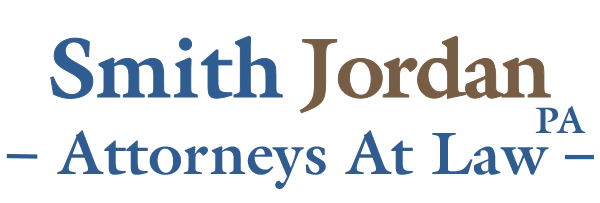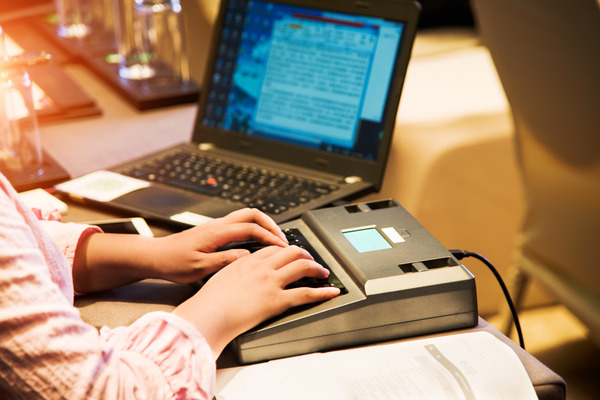A deposition is a crucial part of the discovery process in a personal injury case. It is formal, sworn testimony given by a witness or a party involved in the case outside of the courtroom but under oath.
You might wonder what happens next if you’ve recently completed a deposition in a personal injury case. At Smith Jordan Law, we guide you through each stage, ensuring you know what to expect. Let’s explore what typically happens after a deposition and how it may impact your personal injury case in Greenville.
What exactly is a deposition? How does it work?
During a deposition, attorneys for both sides can ask the deponent (the person being questioned) a series of questions related to the case.
Depositions serve several key purposes in a personal injury case:
- Gather information – Depositions allow both parties to collect detailed information and understand the other side’s position.
- Preserve testimony – The testimony given during a deposition can be used at trial, especially if a witness is unavailable or their testimony differs from their deposition.
- Evaluate witness credibility – Attorneys use depositions to evaluate how credible a witness may appear to a jury.
- Shape legal strategy – The information obtained during a deposition can influence both parties’ legal strategies, including decisions about settlement or trial.
How does a deposition work?
- Location – Depositions typically occur in a lawyer’s office or a conference room, not in a courtroom.
- Participants – The deponent, their attorney, the opposing attorney, and a court reporter who records the entire session are present at the deposition.
- Sworn testimony – Before the questioning begins, the deponent is sworn in, meaning they take an oath to tell the truth, just as they would in court.
- Questioning – The opposing attorney asks the deponent questions related to the case. The deponent’s attorney may object to certain questions, but the deponent usually still answers unless instructed otherwise.
- Record – The court reporter creates a transcript of the deposition, which can be used later in the case, such as during settlement negotiations or trial.
Resource
|
So, here’s what happens after deposition in a personal injury case
1. Transcription process
After the deposition, the court reporter will transcribe the recorded testimony into a written document known as a deposition transcript. This transcript is a verbatim account of everything said during the deposition, including questions posed by attorneys and the responses provided by the deponent (the person being questioned).
2. Legal strategy and case assessment
After the deposition, your attorney will carefully review the transcript and analyze the testimony provided. This analysis helps your attorney assess the strengths and weaknesses of your case and the opposing party’s position. The information gathered during the deposition can influence the legal strategy, including whether to pursue settlement negotiations or proceed to trial.
3. Potential settlement discussions
In many personal injury cases, depositions are a turning point that can lead to settlement negotiations. Once both parties have a clearer understanding of the facts and the strength of the evidence, they may be more inclined to discuss a settlement to avoid the uncertainty and expense of a trial. Your attorney will advise you on any settlement offers and negotiate to ensure you receive fair compensation.
4. Additional discovery requests
The deposition is just one part of the discovery process. After the deposition, either party may request additional information or documents to support their case further. This could include requests for medical records, expert witness testimony, or further interrogatories (written questions) that must be answered under oath.
5. Expert witness depositions
In some cases, expert witnesses may be deposed after the initial depositions are completed. These experts can provide specialized knowledge on key aspects of the case, such as medical conditions, accident reconstruction, or financial losses. Expert testimony can play a significant role in shaping the case’s outcome.
6. Filing motions
After the deposition and additional discovery, both parties may file pre-trial motions. These motions can request various actions, such as dismissing certain claims, excluding evidence, or deciding the case in favor of one party without a trial (summary judgment). The outcome of these motions can significantly impact the direction of the case.
7. Pre-trial conferences
The court may schedule pre-trial conferences to discuss the case’s progress, address any outstanding issues, and set a timeline for the trial. These conferences help ensure that both parties are prepared for trial and that the case proceeds efficiently through the court system.
8. Trial preparation
If the case does not settle, the next step is to prepare for trial. Trial preparation involves finalizing the evidence, preparing witnesses, and developing a compelling argument to present in court. Your attorney will work closely to ensure you are ready for trial and understand the process.
9. Settlement possibilities
Even as trial preparation is underway, settlement discussions may continue. It is common for cases to settle shortly before the trial begins or even during the trial itself. Your attorney will inform you of any developments and advise you on the best action.
Contact us for guidance and support in your personal injury case
At Smith Jordan Law, we are committed to guiding you through every step of the personal injury process to achieve the best possible outcome for your case. Contact us today if you have any questions about your personal injury case or need legal assistance.

